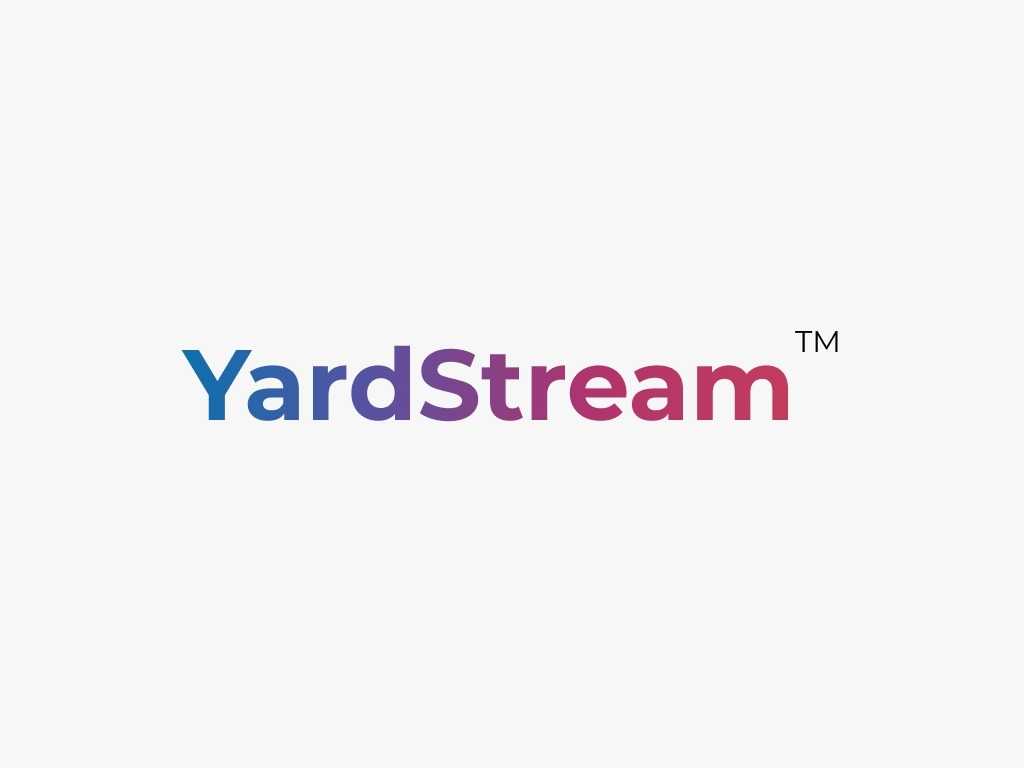Yes, virtual event software can be accessible from different devices and platforms. As remote work and online events have grown in popularity, so has the demand for flexible access to virtual event platforms. Most virtual event software is cloud-based and accessible via web browsers, making it compatible with a variety of devices and operating systems. This allows participants to engage in events using their preferred device, such as a computer, tablet, or smartphone.
List of 20 Best Virtual Event Software
Livestorm is a web conferencing and communication tool tailor-made for customer training webinars. This intuitive platform can be accessed on any device or browser, allowing for seamless hosting of webcasts, live events, and online courses. Livestorm...Read More Livestorm
Townscript Live – solution for seamlessly hosting virtual events. Our advanced online ticketing management platform simplifies registrations, ticketing, and payment processing while providing exclusive access to ticket buyers. With Townscript...Read More Townscript Live
Experience a next-generation virtual career fair with Cynaptxs solution, powered by Microsoft Teams and hosted on Azure cloud. Utilizing the advanced features of Microsoft Teams, Cynaptx offers a seamless and modern platform for students and employer...Read More Cynaptx Virtual Career Fair
EventsWallet - a complete event management software designed for in-person, virtual, and hybrid events. Our platform provides a seamless virtual event experience, enhancing networking, sales, and educational possibilities for both organizers and atte...Read More EventsWallet
YardStream - a virtual event management software that equips event planners with the necessary tools to seamlessly execute outstanding virtual events. With its user-friendly interface, customizable features, networking capabilities, and comprehensive...Read More YardStream
Event Hub Live, the top choice for virtual and hybrid events. Our all-in-one platform offers cutting-edge design and robust attendee engagement features, perfect for organizations seeking to host unforgettable virtual events. With Event Hub Live, cra...Read More Event Hub Live
FLOOR by 10times is a virtual platform created to empower your community. It offers a comprehensive range of virtual event solutions, including the revolutionary oDASH event management software. With robust security measures in place, FLOOR enables s...Read More FLOOR
DC Mixhub, the innovative 3D Online Event Platform that opens up endless possibilities and effortless integrations. With DC Mixhub, you can effortlessly create and host immersive event experiences, complete with networking and engaging interactions...Read More DC Mixhub
Spalba is a one-stop solution for hosting your next virtual or hybrid event. With fully customizable features, you can effortlessly create engaging and immersive experiences for your attendees, whether they are participating online or in-person. Crea...Read More Spalba
Discover the remarkable video conferencing capabilities of WEVE. Our cutting-edge solution is designed to enhance your companys culture, productivity, and engagement through interactive virtual events and activities. From team building exercises to t...Read More Weve
Eventbase is a highly regarded event app software that has established a strong reputation with well-known companies for its outstanding design and user-friendly interface. Leveraging our decade of experience, we offer customizable solutions tailored...Read More Eventbase
Edoobox offers a streamlined solution for course, seminar, and event bookings. Its wide range of tools simplifies the booking process, from initial announcement to payment. With automated scheduling, participant tracking, and customizable branding, E...Read More edoobox
ClickMeeting is a versatile webinar platform designed to provide users with a complete 360-degree experience. It offers customizable options to meet the specific requirements of each user, including easy audio, video, and screen sharing. With feature...Read More ClickMeeting
Ticketsetup - the premier enterprise ticketing solution. Streamline your ticket management across multiple events and locations with our advanced features. Effortlessly create and distribute tickets through various sales channels. Our mobile scanner...Read More Ticketsetup
Zoho Webinar is a platform for organizing and overseeing successful webinars. Featuring a user-friendly interface and advanced capabilities, you can effortlessly host engaging virtual events for large audiences. Keep your attendees actively involved...Read More Zoho Webinar
Attendease is a event management solution for corporate event teams. Our platform simplifies the planning and execution process, allowing teams to effortlessly organize successful events. With a range of advanced features, Attendease guarantees scala...Read More Attendease
SpotMe is a event platform for enhancing audience engagement. Trusted by leading international companies, our platform offers personalized and branded event apps, along with effortless integration, round-the-clock customer support, and extensive data...Read More SpotMe
GoToWebinar is a webinar platform that simplifies lead generation. Its intuitive interface enables you to seamlessly host webinars anywhere. is the package comes with lead management, multi-presenter support, mobile-friendly design, recording, live r...Read More GoToWebinar
RegFox is a event management solution for a stress-free organizing experience. With customizable templates to guide you through every step, planning and executing your event has never been more efficient. From initial preparations to final execution,...Read More RegFox
ON24 is virtual trade show platform that combines immersive virtual environments, interactive features, and social networking capabilities. Its robust reporting engine provides valuable data on the success of your virtual trade shows. Enhance your tr...Read More ON24
Learn More About Virtual Event Software
- What Is Virtual Event Software?
- What Are The Recent Trends In Virtual Event Software?
- Benefits Of Using Virtual Event Software
- Important Factors To Consider While Purchasing Virtual Event Software?
- What Are The Key Features To Look For In Virtual Event Software?
- Why Do Businesses Need Virtual Event Software?
- How Much Time Is Required To Implement Virtual Event Software?
- What Is The Level Of Customization Available In Virtual Event Software?
- Which Industries Can Benefit The Most From Virtual Event Software?
- Conclusion
What Is Virtual Event Software?
Virtual event software is a sophisticated and unique solution for managing virtual events like as conferences, trade exhibits, webinars, and meetings. It allows event organizers to effortlessly plan, execute, and manage online events, with a wealth of features and tools to improve the attendance experience. One of the primary functions of virtual event software is to provide a virtual environment for hosting events, hence removing the need for actual meetings.
This is especially essential in today's digital age, as remote work and distance study are becoming more common. One of the primary benefits of virtual event software is its accessibility. It enables attendees from any location to engage in events, breaking down geographical constraints. This broadens the scope of events and enhances the possible audience, resulting in more engagement and ROI.
In addition to virtual venues, the software provides live broadcasting, interactive sessions, breakout rooms, and networking options. These features replicate the experience of attending an in-person event, encouraging interactions and collaboration among participants. Virtual event software also offers sophisticated data analytics, allowing event planners to monitor attendance, engagement, and other crucial parameters.
This data can be used to assess the success of events and make data-driven decisions about future ones. With the current COVID-19 epidemic and the shift to virtual events, demand for virtual event software has reached an all-time high. As a result, purchasers must carefully analyze their options and select software that best meets their requirements and budget. When selecting virtual event software, consider simplicity of use, security, customization options, connectors, and customer support. With the proper tools, event organizers can build interesting and successful virtual events that have a long-term impact on participants.
What Are The Recent Trends In Virtual Event Software?
Virtual events have grown in popularity in recent years, and the current global scenario has only fuelled their growth. As a result, the market for virtual event software has grown significantly, with new trends emerging to fit the changing needs of both event planners and participants.
Here, we’ll cover the most recent advancements in virtual event software and how to choose the best platform for your events.
1. Hybrid Events: Due to travel restrictions and health concerns, hybrid events, which blend virtual and in-person features, have become a popular trend in the event sector. Virtual event software now includes tools for smoothly integrating virtual and in-person guests, resulting in a unified and engaging experience for everyone.
2. Engagement-Focused Features: Engagement has always played an important role in event success, and virtual event software is continually growing to deliver a more involved experience. Live polls, Q&A sessions, and gamification possibilities are now common features in virtual event systems, helping to keep attendees engaged and interested throughout the event.
3. Analytics And Data Tracking: Virtual event software now includes extensive analytics and data tracking features, giving event planners important insights into attendee behaviour. This information can assist improve future events and make more informed decisions about content, speakers, and overall event strategy.
4. Customisation Choices: Each event is unique, and virtual event software now includes customisation choices to meet the special needs of various events. Event planners have greater control over the appearance and feel of their virtual events, from branding and design to customised features and functionality.
5. Security And Privacy Features: With the proliferation of virtual events, security and privacy have become important priorities. As a result, virtual event software now includes additional security features including secure login, data encryption, and virtual event credentials to protect the safety of guests and their information.
6. Integration With Other Sites: Virtual event software now includes connectors with popular sites like as Zoom, YouTube, LinkedIn, and more. This enables the smooth streaming and exchange of content, making the virtual event experience more user-friendly and intuitive.
7. Accessibility: Virtual events provide greater accessibility by breaking down physical boundaries and allowing guests from all around the world to participate. Virtual event software now includes translation and captioning features, making events more inclusive and accessible to a varied audience. As the events industry transitions to virtual events, these trends in virtual event software are influencing the future of events.
Benefits Of Using Virtual Event Software
Virtual event software has grown in popularity in recent years, particularly as remote work and online events have become more common. This new technology has various advantages for corporations, organisations, and event planners wishing to hold virtual events.
We’ll explore the top advantages of adopting virtual event software to help you make an informed purchasing decision.
1. Accessibility And Convenience: One of the primary benefits of virtual event software is its accessibility and convenience. Attendance at traditional in-person events is limited due to variables such as location, travel time, and expense. However, using virtual event software, attendees may participate from anywhere in the world, saving time and money on travel expenses. Furthermore, virtual event software enables flexible scheduling, making it easier for participants to attend events at their leisure.
2. Cost-Effective: Hosting an in-person gathering is expensive, from venue hire to catering bills. Virtual event software reduces many of these expenditures, making it a more affordable choice. Virtual event software allows you to save on event-related expenditures such as venue rental, food, and printed materials, making it an appealing alternative for businesses and organisations trying to minimise costs without losing event quality.
3. Increased Reach And Audience Engagement: Virtual event software provides a variety of tools and capabilities to help boost audience reach and participation. With features like live streaming, chat rooms, and interactive polls, virtual events may reach a bigger audience and keep them interested. Additionally, virtual event software allows event organisers to track attendee involvement, which provides useful data for future events.
4. Versatility And Customisation: Virtual event software provides a great level of flexibility and customisation, allowing event organisers to design their events to meet their individual requirements. Virtual event software provides a wide range of customisable options for creating a unique and immersive event experience, including branding and design, content, and agenda. This amount of flexibility and customisation allows each event to be tailored to its intended audience, resulting in a more personalised and engaging experience for participants.
5. Real-Time Analysis And Data Tracking: One of the distinct advantages of virtual event software is its ability to track real-time analytics and collect useful data. This information can give event organisers significant insights into audience participation, preferences, and behaviours, allowing them to make data-driven decisions and improve future events. Furthermore, virtual event software can be integrated with customer relationship management (CRM) solutions, giving event organizers a more smooth experience when managing and analyzing data.
Important Factors To Consider While Purchasing Virtual Event Software?
When purchasing virtual event software, it is critical to carefully consider several things to ensure that you are getting the best solution for your individual requirements.
Here are some important considerations to consider when making your decision:
1. Type Of Virtual Event: The first step is to identify the type of virtual event you want to host, and then hunt for software that meets those specific needs. For example, if you are organising a big-scale conference, you will require software that can accommodate a huge number of guests and has capabilities such as virtual networking and breakout sessions.
2. Features And Capabilities: Create a list of the important features and functionalities you require from your virtual event software. This could include live streaming capabilities, audience engagement tools, virtual booths, and interactive seminars. Examine the software's capabilities to ensure they are in line with your event objectives.
3. Usability: The program you select should be user-friendly for both you and your attendees. It should be simple to set up and use, with clear instructions and help available in the event of any problems. Consider the software's design and general look to ensure attendees have a visually pleasing experience.
4. Integration With Other Products: Virtual event software that works flawlessly with your current systems and tools can save you time and effort. Look for choices that interface with your CRM, marketing automation, and other key systems to make it easier to handle and track attendee data.
5. Customization And Branding Options: Your virtual event should align with your brand and deliver a consistent experience for your attendees. As a result, the software you choose should allow for customization, such as branding and design templates that are consistent with your brand identity.
6. Cost: Understand the software's pricing mechanism, which may be one-time or subscription-based. Consider the features included in each tier and compare price to other options to find the best value for your money.
7. Technical Support: In the event of a technical difficulty, it is critical to have reliable customer service available to answer your concerns as soon as possible. Look for software companies that give numerous modes of help, such as live chat, email, and phone support.
What Are The Key Features To Look For In Virtual Event Software?
Virtual event software has become a vital tool for businesses and organisations looking to stay connected and hold events remotely. With so many alternatives available, it might be difficult to find the best software for your individual needs.
To assist you in making an informed decision, below are the essential elements to look for when evaluating virtual event software:
1. Interactive Features: One of the most significant benefits of virtual events is the opportunity to engage and communicate with participants in real time. Look for software that includes live polls, Q&A sessions, and virtual networking possibilities to keep your audience interested and make significant relationships.
2. Customisation Options: Your virtual event should reflect your business and offer participants a unique experience. The software you use should provide customisation choices, such as branding, themes, and layout, to help your event stand out and connect with your brand's personality.
3. User-Friendly Interface: Both organisers and attendees benefit greatly from an easy-to-use interface. The software should be simple and straightforward to use, allowing you to set up and manage your event with ease. Similarly, attendees should be able to easily access the event and have a positive, engaging experience.
4. Video And Audio Quality: Because virtual events rely significantly on audio and video components, it is critical to have software that supports high-quality audio and video streaming. Look for software that supports high-definition video and good audio to ensure a professional and interesting event.
5. Security Measures: Virtual events, like any other online activity, place a high importance on security. To protect your event and participants' data, ensure that the software you chose includes strong security measures such as secure logins, encryption, and password protection.
6. Integration With Other Technologies: Virtual events frequently incorporate a variety of other technologies, such as marketing and CRM systems. The software you choose should have integration, allowing you to smoothly integrate with your existing tools.
7. Technological Support: Despite the software's ease of use, technological challenges may develop during your event. Make sure the virtual event software you chose provides solid technical assistance to help you troubleshoot any issues that may arise.
Why Do Businesses Need Virtual Event Software?
Virtual event software has emerged as a crucial tool for businesses in today's digital economy. As the world increasingly relies on virtual platforms for events and communication, investing in the correct software has become a top priority for businesses of all kinds. Virtual event software provides several benefits, making it an essential tool for businesses trying to succeed in the virtual environment.
First and foremost, virtual event software enables organisations to arrange events with ease and efficiency. The event management process is simplified by offering a single platform for all event-related operations such as registration, ticketing, live streaming, and audience participation. This not only saves time and resources, but also results in a more professional and organised event, which makes a good impression on guests.
Furthermore, virtual event software provides greater reach and audience engagement options than traditional in-person events. With the capacity to reach a worldwide audience and measure participant participation and comments, businesses can obtain vital insights into their audience and optimise future events accordingly. Additionally, virtual event software provides a cost-effective alternative for businesses.
Businesses can save large amounts of money by holding virtual events, which eliminate the need for pricey venue rents, catering, and travel expenses. It also allows businesses to monetise their events through ticket sales, sponsorships, and virtual booths, creating a new cash stream for them. Another important consideration is the versatility that virtual event software provides.
Businesses may appeal to a larger audience by hosting events at any time, from any location, and on any device. It also gives guests an easy way to engage in events regardless of their location, schedule, or physical constraints. Virtual event software also includes advanced capabilities like real-time statistics, personalised branding, and interaction with other tools such as CRM and marketing automation software. These capabilities not only improve the event experience for attendees, but they also give businesses with vital data and insights into the effectiveness of their events.
How Much Time Is Required To Implement Virtual Event Software?
Implementation time for virtual event software varies depending on the exact features and customisation choices selected, as well as the event's size and complexity. On average, it takes 2-4 weeks to fully implement the software. This comprises establishing the virtual event platform, customising the design and branding, integrating with any required third-party solutions, and testing the functionality.
However, for larger and more sophisticated events, implementation can take many months. This is because of the additional requirements and preparation required for virtual booths, live broadcasting, and networking capabilities. To ensure a smooth and timely deployment process, convey your event requirements and timeframe to the software supplier.
It is also worth noting that if the program includes pre-built templates or a user-friendly interface that allows for easy customisation, the implementation time may be reduced. This can save time and effort, particularly for those who have little technical skills. Furthermore, people who are already familiar with the platform or have prior experience with virtual events may find the implementation process faster because they are more familiar with the software's functionalities.
Overall, it is advised that the implementation process begin at least 4-6 weeks prior to the scheduled event to allow for customisation and testing. This will result in a successful and smooth virtual event experience for both organisers and participants.
What Is The Level Of Customization Available In Virtual Event Software?
When it comes to conducting virtual events, customization is essential for providing a personalized and engaging experience for your guests. When deciding on virtual event software, it is critical to evaluate the level of customization offered. Virtual event software provides a variety of customization possibilities, allowing event organizers to personalize the platform to their individual requirements and branding.
This involves customizing the event registration page, developing a branded event website, and creating personalized email invitations. Furthermore, most virtual event software allows you to customize the event style and design. This includes the ability to change the color palette, add logos and branding features, and customize the arrangement of virtual booths or session rooms.
Furthermore, some virtual event software provides significant customization possibilities, giving you complete control over the event's design and feel. This can include designing bespoke graphics, incorporating interactive components like polls and surveys, and even embedding films on event pages. It's also worth noting that the level of customization available varies per virtual event software supplier. As a result, it is critical to examine your individual customization requirements and select a platform that provides the appropriate level of customization.
Which Industries Can Benefit The Most From Virtual Event Software?
Virtual event software has gained popularity in recent years, allowing businesses and organisations to hold events online and reach a larger audience. But which industries will gain most from this technology?
Let's have a closer look.
1. Events And Conferences Sector: The events and conference sector is one of the most apparent candidates for virtual event software. This program allows event planners to simply construct and manage virtual events, removing the need for costly locations, travel, and lodging. This not only lowers expenses, but also makes events more accessible to a greater audience, resulting in increased attendance and participation.
2. Education Business: Virtual event software can also aid the education business significantly. With the rise of remote learning, educators may now use this software to deliver virtual classes, webinars, and seminars. This enables them to reach students worldwide and offer a more involved learning experience than traditional online courses.
3. Marketing And Advertising Industry: Virtual events have become an important tool for marketers and advertising. They can use virtual event software to organise product debuts, live demos, and other marketing events, allowing them to show off their products or services to a global audience. This may result in increased brand exposure, lead generation, and overall revenue.
4. Corporate World: Virtual event software benefits both large and small enterprises. It enables organisations to hold virtual meetings, conferences, and training sessions, saving both time and money on travel and venue fees. Furthermore, it allows firms to contact a broader spectrum of potential customers and increase their global footprint.
5. Non-Profit And Charity Organisations: Virtual event software has transformed the way non-profit and charitable organisations operate. By organising virtual galas, auctions, and fundraisers, companies may raise awareness and revenue for their causes while reaching a bigger and more diversified audience. This not only reduces event costs, but also contributes to the development of a strong and engaged community of supporters.
Conclusion
Finally, virtual event software has transformed the way events are organised and conducted, ensuring a seamless online experience for attendees, speakers, and event organisers. With a diverse set of features and possibilities, these software platforms provide customisable solutions for all types of events, from local meetings to large-scale conferences.
By carefully examining your event's goals and objectives, audience size and needs, and budget, you may select the best virtual event software to elevate and succeed. Whether through interactive features, networking possibilities, or advanced analytics, virtual event software enables you to create engaging and compelling events that leave an indelible impression on your audience. So, before making your final decision, conduct extensive study and compare several options to see your virtual event come to life.
Virtual Event Software FAQ's
Can Virtual Event Software Be Accessed Across Multiple Devices And Platforms?
Is Virtual Event Software Future-Proof And Adaptable To Emerging Technologies Like AI, Blockchain Or IoT?
Yes, virtual event software is intended to be future-proof and adaptable to new technologies. With the emergence of AI, blockchain, and IoT, many virtual event platforms are adopting these technologies to improve the attendance experience. AI-powered matchmaking, blockchain-based safe transactions, and IoT-enabled virtual booths are becoming more prevalent. This ensures that virtual event software remains current and adapts to the ever-changing technology context.
Is There A Free Trial Offered To Assess Virtual Event Software Before Committing?
Yes, many virtual event software companies provide a free trial period so that users can evaluate the product before making a commitment. This trial period varies in length but normally lasts 14-30 days. During this time, users can test the software's features and functionality to see if it meets their requirements. It's an excellent method to acquire a feel for the product and its features before making a purchase.
Does Virtual Event Software Offer Data Security Features And Meet Regulatory Compliance Standards?
Yes, most virtual event software has comprehensive data security safeguards to protect sensitive information and ensure regulatory compliance. These features could include encrypted data transfers, secure login processes, and data backups. Furthermore, many virtual event software vendors follow international rules like GDPR and CCPA to protect personal data. It is critical to select a reliable virtual event software vendor with a proven track record in data security and compliance.
Can Virtual Event Software Integrate Seamlessly With Existing Tools And Platforms?
Yes, virtual event software can work perfectly alongside existing tools and platforms. Most virtual event software integrates with major tools and platforms, including CRM systems, marketing automation tools, and video conferencing platforms. This enables organisers to quickly integrate their existing tools and data, resulting in a more efficient and personalised event experience. Furthermore, some virtual event software has API integrations for additional customisation and compatibility.






















